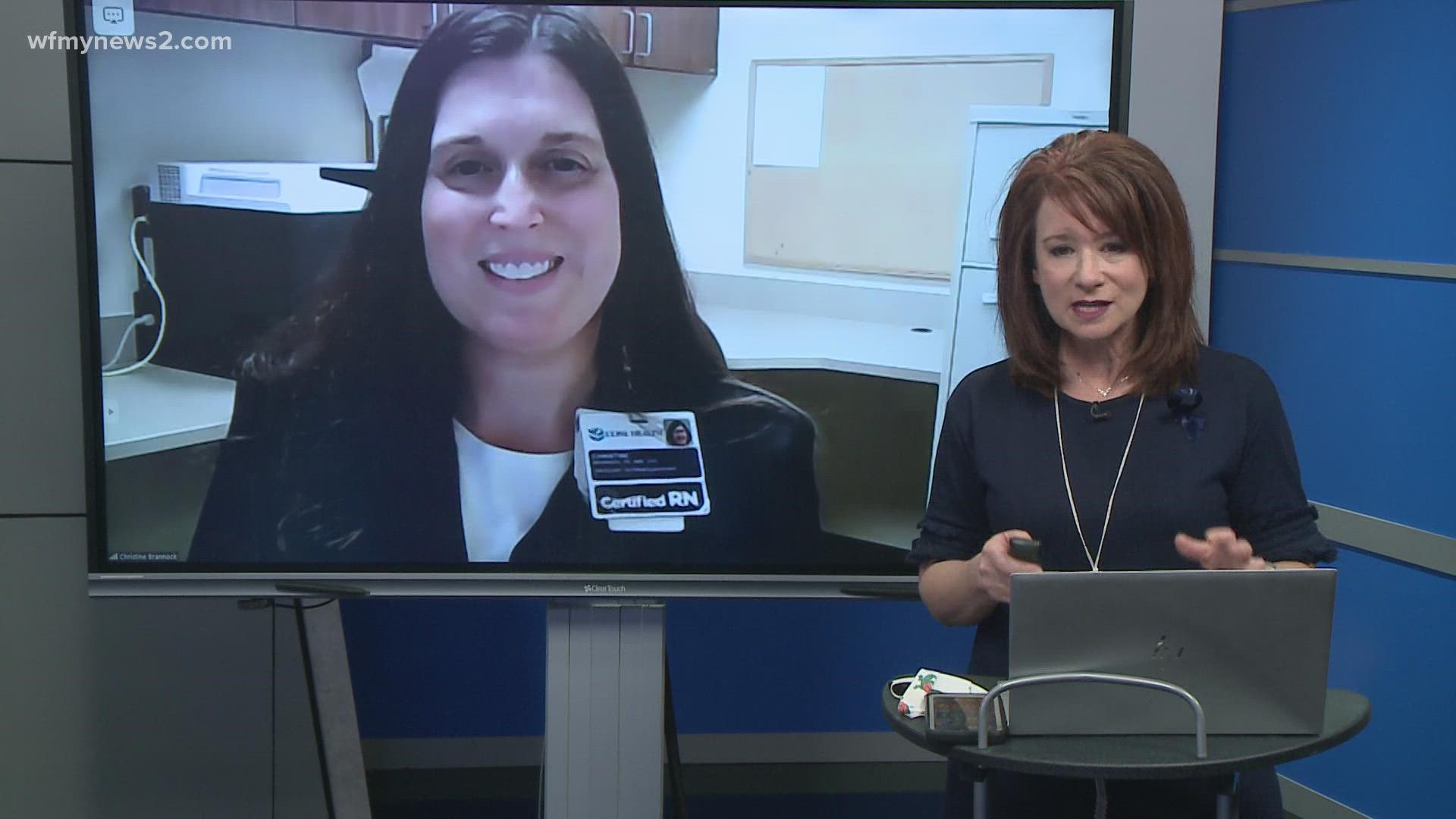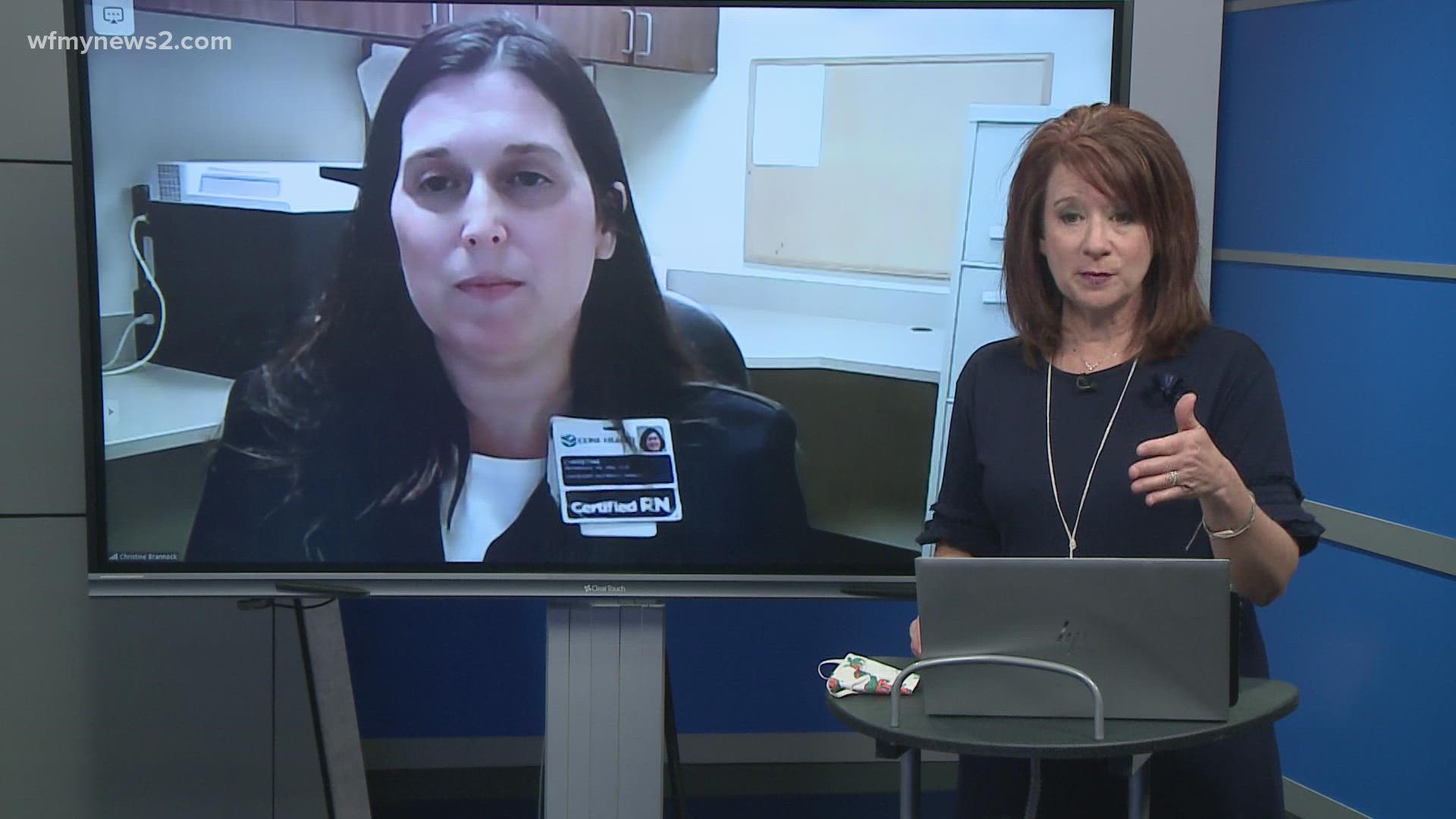GREENSBORO, N.C. — The American Cancer Society estimates there will be 106,180 new cases of colon cancer in the US in 2022. One of those cases is impacting our News 2 family. Last month, Julie Luck shared her being diagnosed with stage 3A colon cancer.
She posted an update to Facebook, "March is Colon Cancer Awareness Month. The message is simple. Check. Your. Colon. Honestly, I wish I got tested last year when the CDC lowered the recommended colonoscopy age to 45. Perhaps I could've avoided chemo altogether if the tumor was caught earlier. Don't be me. Don't have any regrets. Get screened. Early detection is key."
In today's 2 Your Well-Being, Nurse Christine Brannock, the oncology outreach manager with Cone Health, joined us to talk about what you should know about colon cancer and the importance of early detection.
What is colon cancer?
Brannock said colon cancer is a type of cancer that begins in the large intestine. The colon is the final part of the digestive tract. It typically affects adults over, though it can happen at any age. Brannock said they saw more and more cases in younger adults.
Brannock said they now recommend getting screened for colon cancer starting at 45. The only way to get a true diagnosis is to get a colonoscopy, but there are other tests you can do before. People with an increased risk, such as those with a family history of colon cancer, should consider screening sooner.
Signs of colon cancer
- A persistent change in your bowel habits, including diarrhea or constipation or a change in the consistency of your stool
- Rectal bleeding or blood in your stool
- Persistent abdominal discomforts, such as cramps, gas, or pain
- A feeling that your bowel doesn't empty completely
- Weakness or fatigue
- Unexplained weight loss
Brannock said if you notice any of these symptoms, you should contact your doctor.
Reduce your chances of colon cancer
While there is no full-proof preventative, Brannock said there are things you can do to help. They include eating a healthy diet, quitting smoking, exercising, and maintaining a healthy weight.


